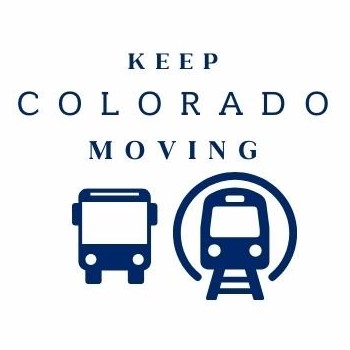GDT > Campaigns > Success Stories > RTD TABOR De-Brucing Ballot Measure 7A
Thank you for voting “Yes” on the RTD TABOR De-Brucing Ballot Measure 7A!
Nov, 5th 2024 – Success… Ballot Measure 7A passes!
On November 5th, 2024, voters in the RTD District approved measure 7A with approx. 69% in favor.
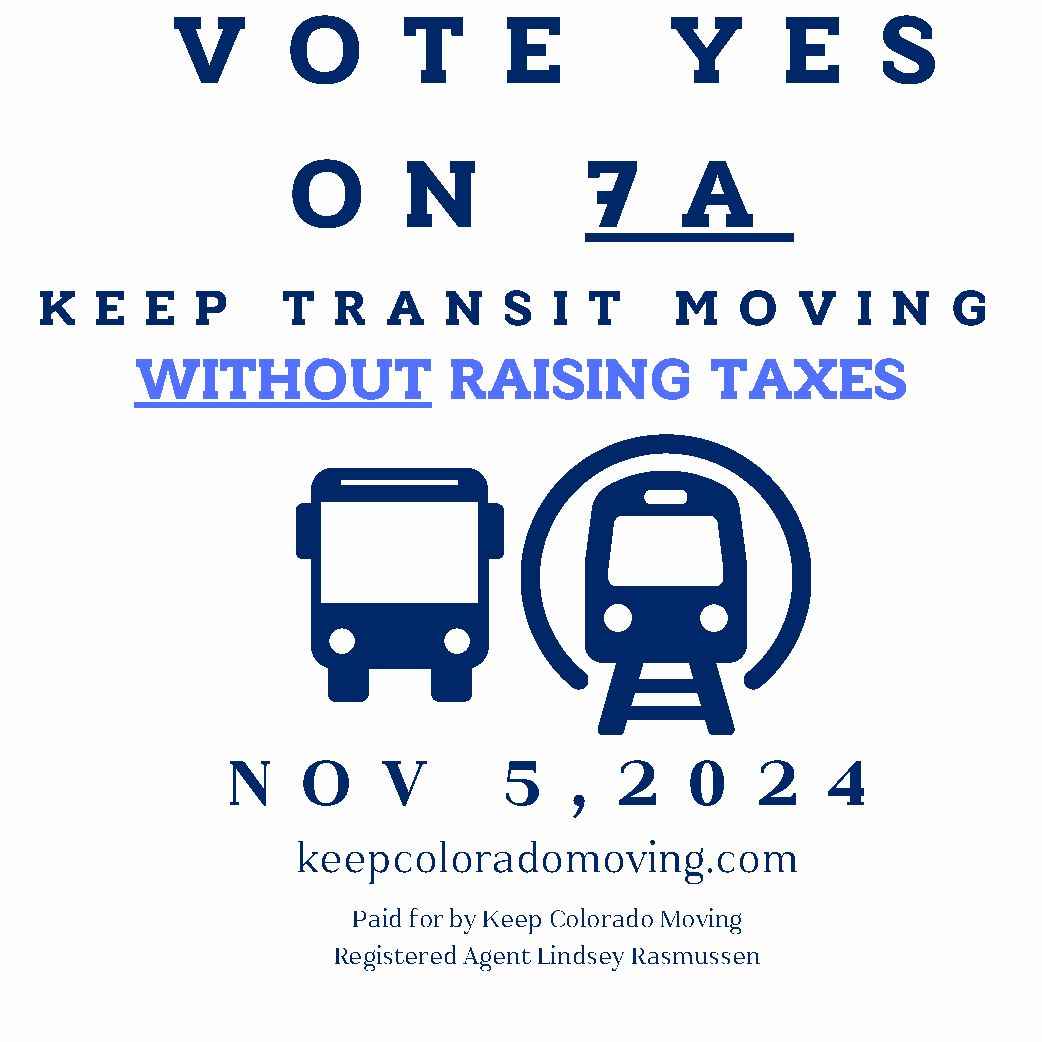
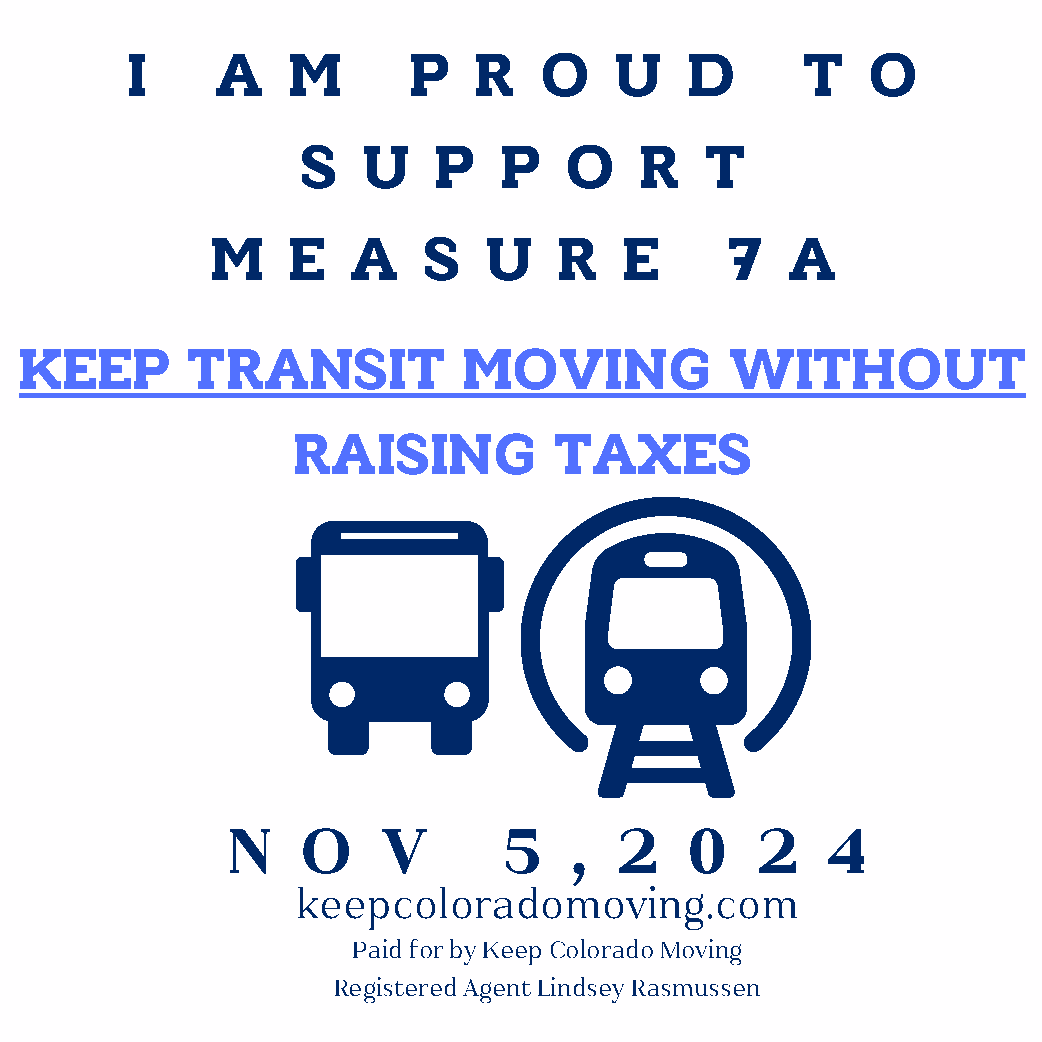
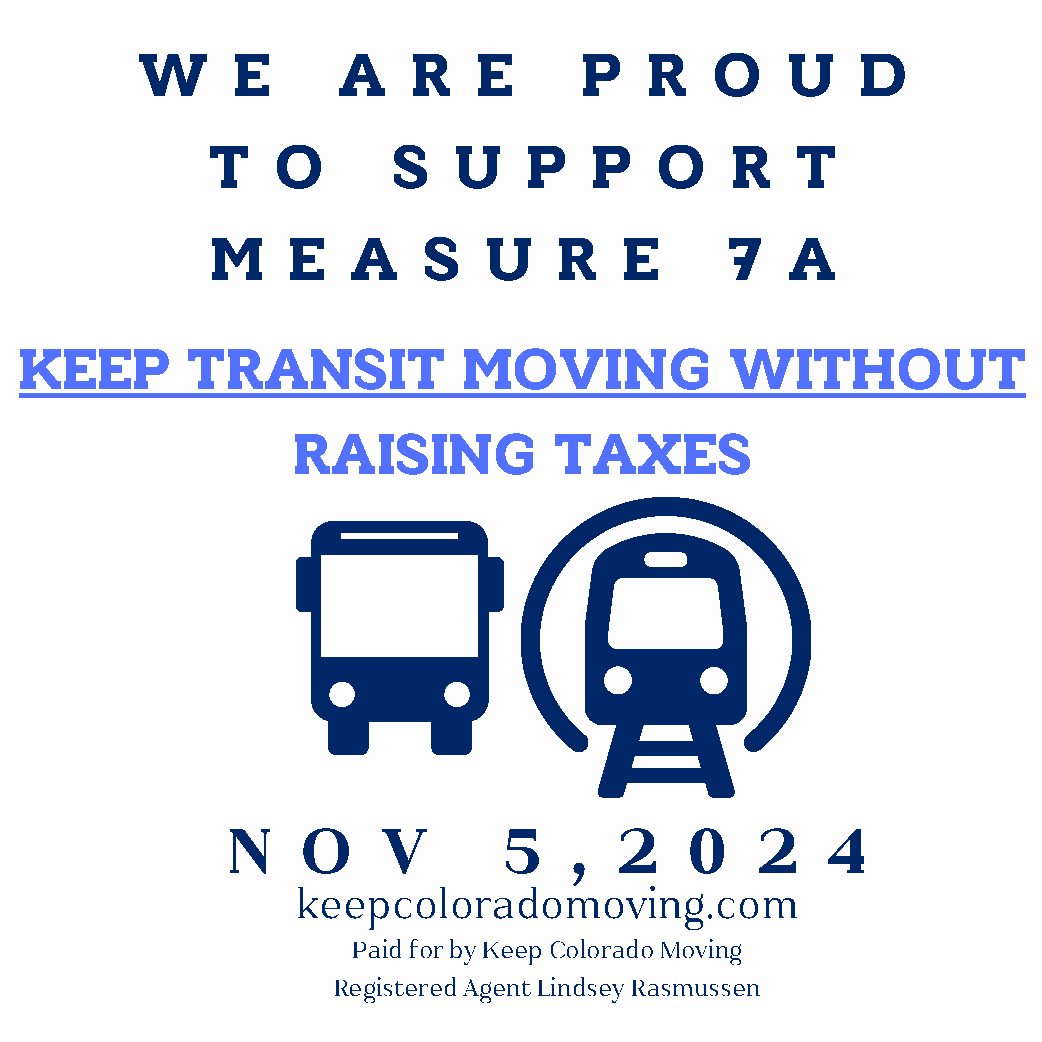
Ballot Measure 7A Text
“Without imposing any new tax or increasing any tax rate, shall the Regional Transportation District’s (“RTD”) authorization to collect, retain and spend revenues it receives from all sources including its sales tax revenues, grant funds and other money’s lawfully received by RTD from the State of Colorado or any other source, originally approved by voters in 1999, be continued to permit RTD to retain revenue necessary to provide vital RTD services, including but not limited to:
- Providing transportation choices to local residents by maintaining and growing current levels of bus and rail services;
- Repairing and improving rail lines, buses, bus stops and stations and other infrastructure to preserve the public’s investment in transit;
- Maintaining the availability of services for people with disabilities;
- Continuing to provide cleaner, more efficient methods of transportation other than driving on roads and highways;
- Providing transportation services for youth 19 years of age or younger at reduce or no fares;
with all funds subject to an independent audit and oversight by the elected RTD Board; as a voter approved revenue change and exemption from any revenue and spending limitations under Article X, Section 20 of the Colorado Constitution?”
What is TABOR?
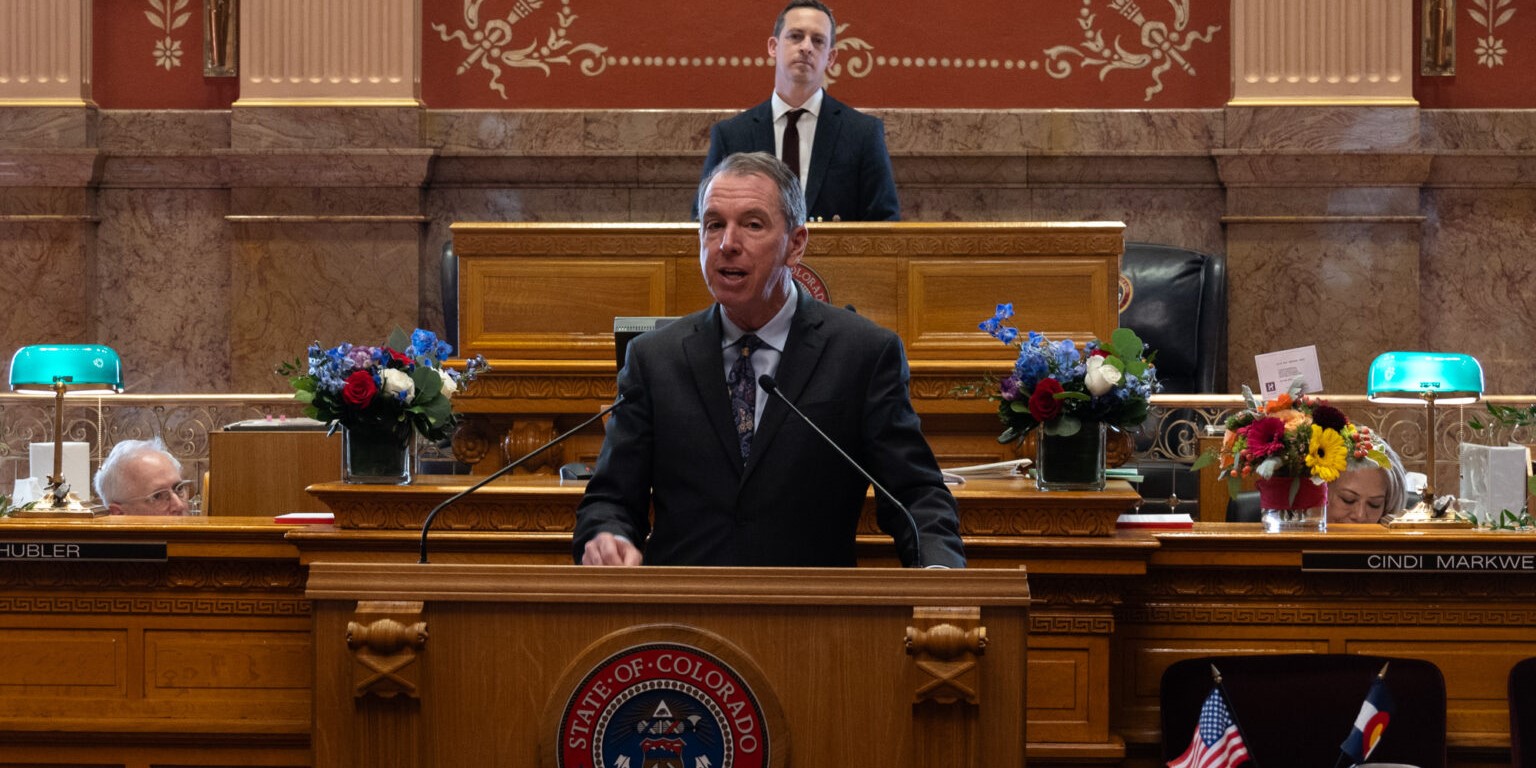
TABOR stands for the Colorado Taxpayer’s Bill of Rights, which was passed by Colorado voters in 1992. TABOR imposes strict limitations on the amount of revenue that Colorado state and local governments, including special districts like RTD, can retain and spend. This law mandates that any revenue collected beyond a specified limit must be refunded to taxpayers unless voters approve otherwise. While TABOR was intended to control government spending due to growth and give taxpayers more say over tax increases, it also inadvertently restricts the ability of entities like RTD to adequately fund and expand their services to meet growing demand.
“De-Brucing”?
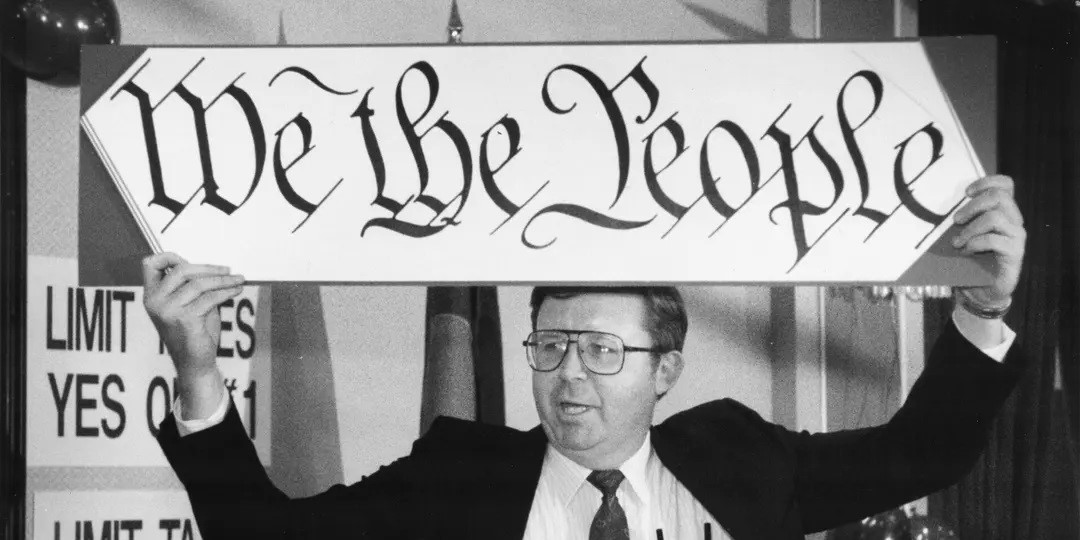
The concept of “de-Brucing” refers to the process of obtaining voter approval to lift these revenue restrictions imposed by TABOR. Named after Douglas Bruce, the author and primary original proponent of TABOR, “de-Brucing” allows an entity to retain and utilize revenues that exceed the TABOR cap.
How did this situation come about?
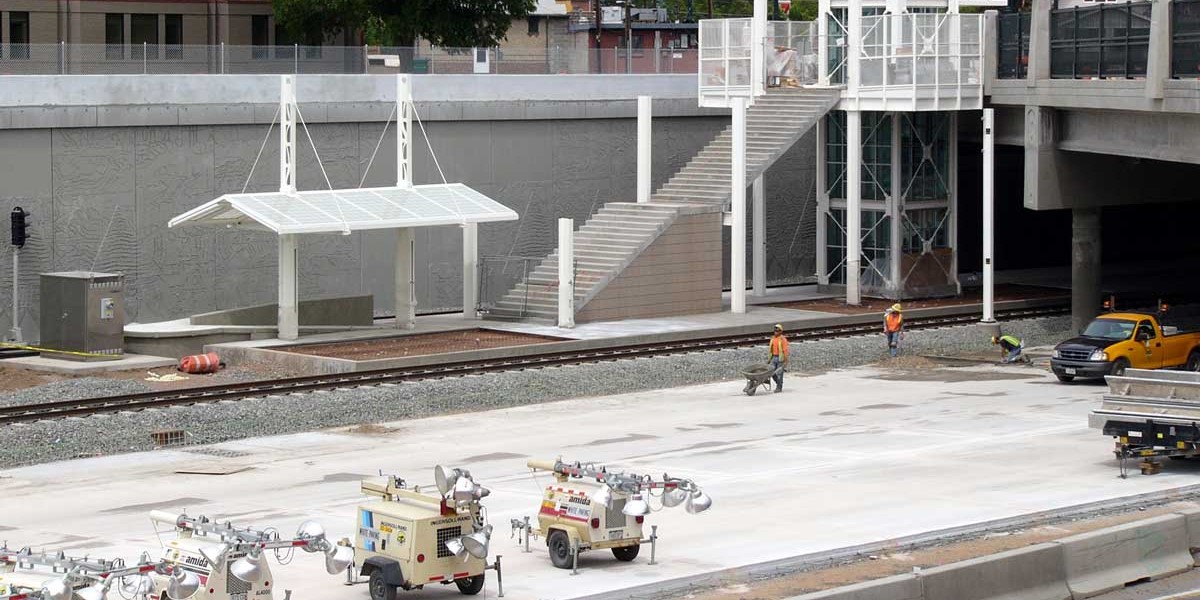
In 1995 voters exempted RTD from TABOR revenue and spending limits through 2005. In 1999, in order to help finance the capital construction costs of the Transportation Expansion (T-REX) Project which built the E and H lines along I-25 and I-225, RTD took out bonds which were to be repaid over a 25-year period. At the same time as approving the bonds, voters also approved an extension to the RTD exemption from TABOR for as long as the bonds were being repaid. While the T-REX project was completed in 2006, RTD is now finishing paying off the bonds on schedule by the end of 2024. In 2025, with the bonds fully repaid, the agency will be subject to the revenue restrictions imposed by TABOR again.
What are the TABOR revenue restrictions?
Firstly, TABOR restrictions only apply to certain types of revenue the agency receives.
These include:
- Fares
- Advertising / naming rights
- 0.6% “base” sales tax
- Investment income
- Other income (e.g. Revenue sharing DUS and Miscellaneous)
Revenues exempt from TABOR include:
- 0.4% “Fastracks” sales tax (through 2050)
- Federal funds
- Federal funds investment income
- Retirement plan contributions
- Gifts/donations
- Damage awards received
- Fees
- Other income (e.g. rent / leases)
TABOR restricts revenue for a particular year above an annual revenue cap. Every year, the TABOR cap is adjusted by adding a “growth factor”. This is calculated by taking the previous year’s revenue cap and adding the lesser of the Denver-Aurora-Lakewood Consumer Price Index (CPI) plus the change in value of real property from construction minus destruction of property improvements and additions or the actual % change in revenue.
A 2023 example identified $631 million of RTD revenue as subject to TABOR (approx. 50%) and then calculated a 2023 ”growth factor” of 9.166%. This in turn set a 2023 annual revenue cap of $687 million for RTD revenue subject to TABOR.
Why does RTD need to “de-Bruce”?
With approximately half of its revenue restricted from growing more than about 9% a year and operational costs increasing by double-digits, RTD will experience a “ratchet down” effect on its finances. This will lead to the agency being faced with a transit system it cannot afford to operate and unless major new funding streams can be found, difficult decisions on what services to cut will need to be made. RTD currently calculates that if nothing is done, transit service will need to be cut by approx. 20% starting in 2026. In addition all capital projects such as zero emission fleet transition and finishing the remaining Fastracks rail lines will be put on indefinite hold.
How would RTD “de-Brucing” affect me personally?
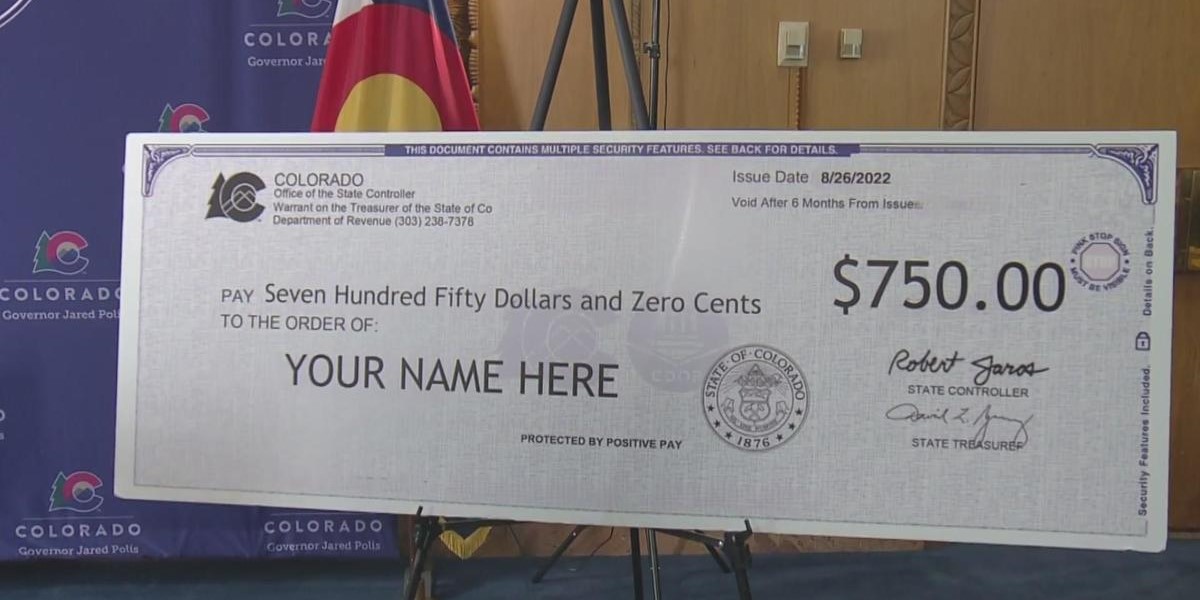
As “de-Brucing” would result in RTD being able to keep between $80m to $100m a year, when spread over the RTD District’s 3m residents, this equates to an amount of between $25 and $40 not being added to that $750 TABOR refund check. A small price to pay to retain and expand our transit system. In addition, if RTD is unable to de-Bruce, all new state funding for transit approved in the 2024 legislative session will go towards ensuring service offerings are not cut instead of expanding transit service.
So how is the “de-Brucing” actually done?
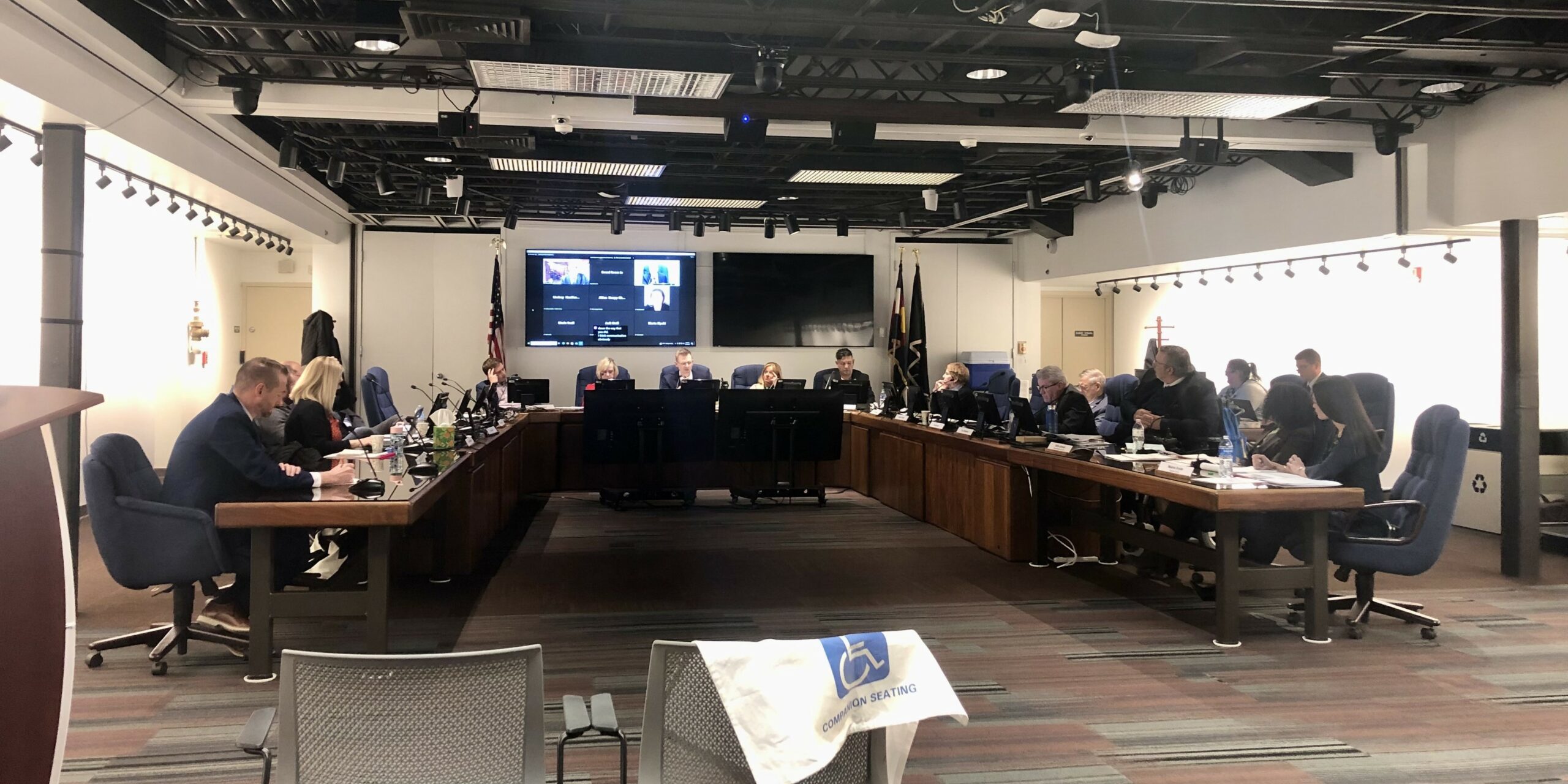
TABOR requires voter approval to exempt any local government from the TABOR revenue cap. This must be done by a simple majority vote by the residents of the district. As a special district, RTD has the power to put forward a ballot measure on its own and without the requirement to collect signatures
The RTD Board voted unanimously to put forward the ballot measure in June 2024. The voters will get to have their say on November 5th, 2024.
In summary…
Lifting the revenue restrictions will empower RTD to address the growing transportation demands, invest in essential infrastructure projects, enhance service quality, and contribute to the overall economic and environmental health of the region. As the Denver Metro area continues to expand, ensuring that RTD has the financial capability to meet these challenges is not just beneficial but necessary for the region’s future prosperity.
How can I get involved?
First, vote “Yes” on the RTD TABOR De-Brucing Ballot Measure 7A this November!
GDT is part of the Keep Colorado Moving campaign. We encourage individuals and organizations to join here.
